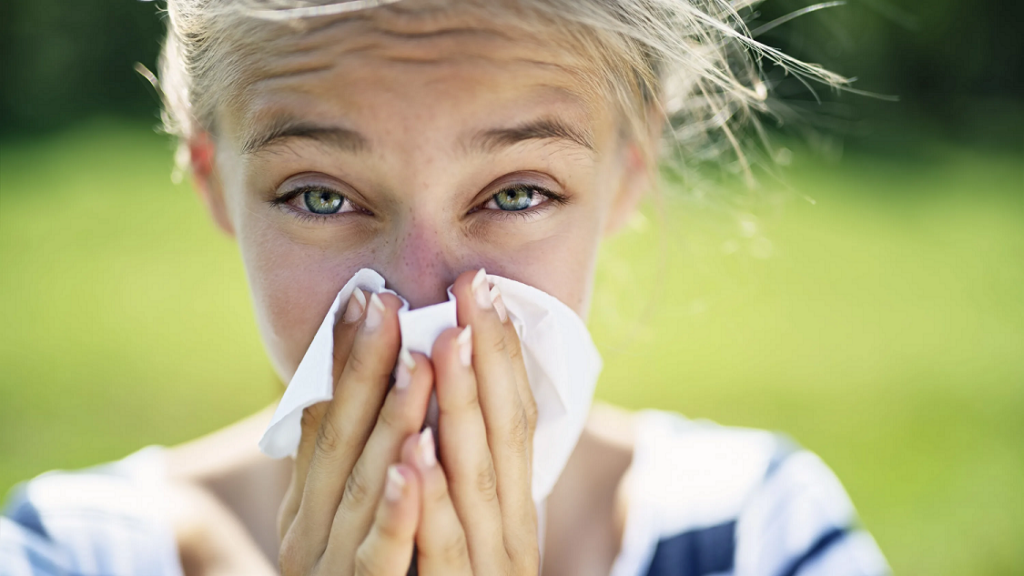As spring unfolds, bringing with it a symphony of blooming flowers and greening trees, many individuals find themselves grappling with the less welcome arrival of allergy season. Seasonal allergies, commonly triggered by pollen from plants, mold spores, dust, and pet dander, can significantly affect your eyes, leading to discomfort and sometimes more severe reactions. In this comprehensive guide, we’ll explore what causes these eye allergies, what you should avoid during high pollen counts, and how best to treat eye allergies to maintain clear, comfortable vision throughout the season.
What Causes Seasonal Eye Allergies?
Seasonal eye allergies, also known as allergic conjunctivitis, occur when the body’s immune system reacts to airborne allergens with a hypersensitive response. Pollen from trees, grasses, and weeds is the most common culprit during allergy season. When these tiny particles come into contact with your eyes and nasal passages, they can trigger the release of histamines, leading to inflammation and symptoms such as red, itchy, and watery eyes. Other environmental allergens like mold, dust, and animal dander also contribute to these reactions, particularly when outdoor activity increases.

What to Avoid During Allergy Season
To minimize eye allergy symptoms, it’s important to know what to avoid during high pollen counts:
- Touching or rubbing your eyes: This can worsen irritation and potentially lead to more serious issues like infections.
- Leaving windows open: Keeping windows closed during high pollen days prevents these allergens from entering your home or car.
- Skipping protective eyewear: Sunglasses or protective glasses can help shield your eyes from allergens. Choose wraparound styles to maximize protection.
- Forgetting to change clothes and shower after being outdoors: Pollen can stick to clothing and hair, so it’s a good idea to change your outfit and shower to remove allergens after spending time outside.
How to Treat Eye Allergies Effectively
Managing eye allergies involves a combination of preventive measures and effective treatments to alleviate symptoms. Here are some strategies to help you cope:
- Use artificial tears: Over-the-counter lubricating eye drops can help wash away allergens from the ocular surface, providing relief from dryness and irritation. Use preservative-free varieties if you need to apply them more than four times a day.
- Apply cold compresses: A cold compress can soothe your eyes and reduce inflammation and itchiness. This can be particularly comforting after exposure to allergens.
- Consider antihistamine eye drops: Antihistamine eye drops are specifically formulated to counteract the effects of histamines released during an allergic reaction. They can provide quick relief from itching and redness.
- Explore prescription options: If over-the-counter solutions aren’t sufficient, stronger prescription level medications like antihistamine or steroid eye drops for severe cases.
- Maintain indoor air quality: Use air purifiers with HEPA filters to capture indoor allergens and maintain a clean environment at home. Regularly replacing air filters in your home and in air conditioning systems can also help reduce exposure to circulating allergens.
- Stay hydrated: Keeping well-hydrated is essential during allergy season. Increased fluid intake can thin secretions and help alleviate some symptoms associated with allergic reactions.
- Use Daily Disposable Contact: Pollen and dust can get stick to monthly or biweekly contact lenses and are difficult to remove even if you rub the lenses. Wearing a fresh contact lens every day will reduce the amount of allergens that touch your eyes.
Proactive Measures for Eye Allergy Relief
- Monitor pollen forecasts: Stay updated with local pollen forecasts and plan your outdoor activities when levels are low. Mobile apps and websites can provide real-time pollen information.
- Air purifiers: Using air purifiers with HEPA filters in your home can help trap allergens, providing a cleaner indoor air environment.
- Hydration and diet: Staying hydrated and consuming a diet rich in omega-3 fatty acids and vitamins can strengthen your immune system and potentially reduce allergy symptoms.
Schedule Your Eye Exam Today
While allergy season can be particularly troublesome for individuals sensitive to pollen and other airborne allergens, understanding the causes and taking proactive steps to manage symptoms can make a significant difference. By implementing preventive measures and using appropriate treatments, those affected can enjoy the vibrant beauty of spring with fewer interruptions from eye allergy symptoms. Remember, if symptoms persist or worsen, seeking professional medical advice is crucial to ensure proper care and avoid complications.
At Optical Illusions, we are proud to offer the most comprehensive eye exams with the most modern technology in the country. Contact our team to schedule your appointment at 1 of our 4 conveniently located offices on the west coast, in San Mateo, San Jose, San Ramon, and Juneau.



